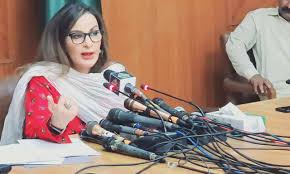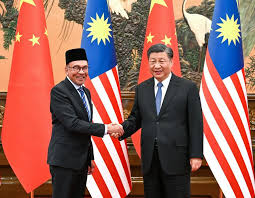Riyadh prepares for Second Joint Arab-Islamic Summit: Analyzing past achievements, future prospects

Riyadh: As the world’s attention turns to Riyadh, leaders from across the Arab and Islamic world prepare to convene at the Second Joint Arab-Islamic Summit on Monday, November 11, hosted under the auspices of Saudi Arabia.
This high-stakes gathering is expected to drive critical dialogues on the escalating crises in the Middle East and other issues facing the Islamic world. The summit builds on the accomplishments and momentum of the first Joint Arab-Islamic Extraordinary Summit, which was held on November 11, 2023, to address the volatile situation in Gaza and the broader challenges within the region.
Since the inaugural summit, significant strides have been made towards enhancing regional stability, supporting humanitarian needs, and creating diplomatic pathways for conflict resolution. The 2023 summit led to critical emergency relief for the people of Gaza, international calls for an end to Israeli occupation measures, and collective commitments among member states to support the Palestinian cause.

Saudi Arabia, leveraging its leadership within both the Arab League and the Organization of Islamic Cooperation (OIC), has played a pivotal role in mobilizing diplomatic efforts to address the humanitarian and security challenges facing Palestinians and neighboring states.
Ahead of the summit, Pakistan’s Ministry of Foreign Affairs during its weekly briefing informed that Prime Minister Muhammad Shehbaz Sharif will travel to Riyadh to participate in the November 11 session. As a committed supporter of the Palestinian cause, he is expected to reiterate Pakistan’s stance, demanding an immediate end to the suffering in Gaza and a cessation of Israeli military actions that threaten regional stability.
The foreign office spokesperson, Mumtaz Zahra Baloch has emphasized, “Pakistan stands united with the people of Palestine in their struggle for sovereignty. Prime Minister Sharif will call for an urgent and unconditional ceasefire in Gaza, along with international protection for Palestinian citizens. Pakistan firmly believes in establishment of an independent Palestine on the borders of June 4, 1967 and Al-Quds Al-Sharif as its capital.”
Additionally, she was of the view that the Prime Minister Shehbaz is expected to advocate for enhanced multilateral cooperation within the OIC and Arab League frameworks to counter humanitarian crises and protect the rights of oppressed communities in the region.
To further prepare for the summit, she informed that Deputy Prime Minister and Foreign Minister Senator Mohammad Ishaq Dar will attend the preparatory Council of Foreign Ministers (CFM) meeting on November 10. This session will set the summit’s agenda and reinforce consensus on the core issues, enabling the leaders to address shared challenges and explore avenues for peace and stability.
Asenior journalist, anchorperson and news analyst, Shaukat Piracha said over the past year, the Joint Arab-Islamic Summit has underscored the solidarity among Arab and Islamic countries and demonstrated the collective strength of unified diplomacy. Through this collaboration, he said the summit has fostered dialogue on a range of pressing issues, from the devastating humanitarian situation in Gaza to the broader security threats within the region.
Shaukat Piracha highlighted the key achievements including strengthened humanitarian aid channels, coordinated diplomatic responses, and a strengthened emphasis on upholding international laws to safeguard human rights. These outcomes have reflected Saudi Arabia’s commitment to a more stable and cohesive Islamic world, particularly through concerted efforts with the Arab League and OIC to address the impacts of conflict and political instability, he maintained.
This year, Shaukat Piracha hoped that participants will once again focus on the ongoing Israeli aggression against Palestinians , with calls to end what many leaders describe as a humanitarian catastrophe in Gaza. He said Saudi Arabia has reaffirmed its intention to lead discussions halting hostilities, facilitating humanitarian aid, and advancing international support for Palestinian sovereignty.
In addition, Shaukat Piracha said the Summit is expected to address the wider regional security challenges posed by instability in the Middle East, including the potential for diplomatic interventions and peace-building initiatives. Given the recent intensification of the situation in Gaza and broader geopolitical tensions, he said many leaders are expected to appeal for sustained international attention, diplomatic engagement, and increased humanitarian assistance.
According to the foreign office spokesperson, Prime Minister Sharif is also anticipated to hold several bilateral meetings with leaders from Arab League and OIC member states on the sidelines of the summit. These interactions are expected to deepen Pakistan’s diplomatic partnerships within the Islamic world, exploring avenues for mutual cooperation on shared security and economic interests.
The world community is watching closely as Riyadh once again becomes the center stage for pivotal discussions that hold far-reaching implications for peace and stability in the Middle East. By bringing together heads of state, diplomats, and officials from the Arab and Islamic worlds, the summit underscores the importance of multilateral engagement and Saudi Arabia’s instrumental role in addressing regional crises. In a world increasingly polarized by ideological, political, and territorial conflicts, the Second Joint Arab-Islamic Summit stands as a beacon of hope for unity, cooperation, and peace.
As regional and global actors await the summit’s outcomes, the participating nations, and particularly Saudi Arabia, demonstrate a commitment to steering the course toward justice, peace, and humanitarian support, a crucial step forward for a region marred by decades of conflict yet striving toward lasting peace and stability.





